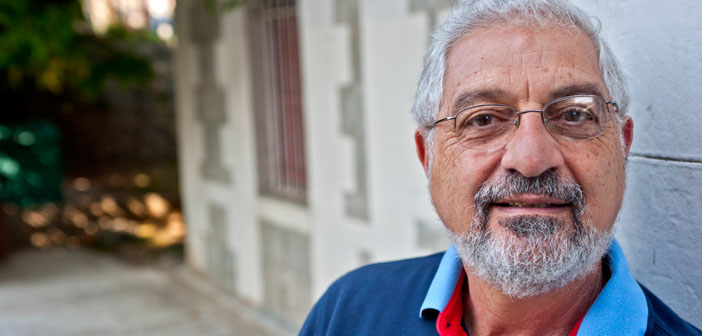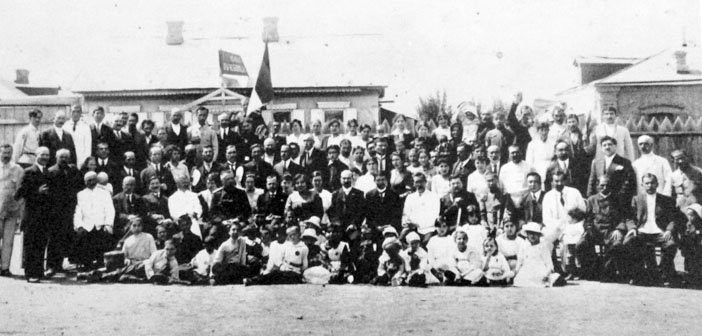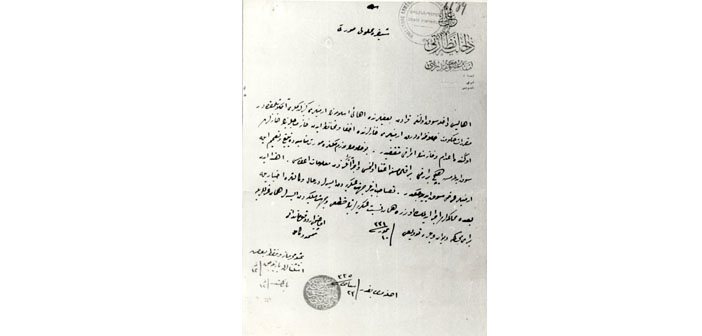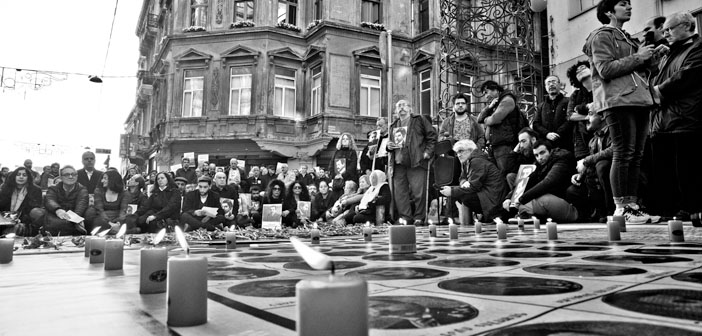One of the most prominent genocide researchers in the world, Ronald Grigor Suny was in İstanbul for “Critical Approaches to the Armenian Genocide Conference” that is organized by Sabanci University. We made an interview with Suny; he shared his evaluations on the 100th anniversary of the Armenian Genocide and his views on the events in Kurdistan from the perspective of the Armenian Genocide.
What were your expectations concerning 2015 and were they met?
Generally, I am an optimistic and positive person and I can say that I feel quite content with the developments that happened this year. We made progress, it was important to hold this conference in İstanbul. Also, the reference books on the genocide are translated into Turkish and this is also important for me. Two of my books will be published by Aras Publishing. “A Question of Genocide” which was prepared by me, Fatma Müge Göçek and Norman Naimark, translated into Turkish by The Turkish Historical Society. These are very big steps. If someone who lives in Turkey or who can read Turkish want to learn what happened in 1915, if they want to do some serious reading about the deep and dark periods of the foundation of Turkish Republic, they can find the material they need now. You have to deal with this issue honestly and you have to spare a lot of time, but now you have the material. 15 years ago, this was out of question. In the last 15 years, there has been an intense interaction among Turkish, Kurdish and Armenian scholars. The history of the western Armenians is being integrated into late Ottoman history and early Turkish Republic history, though those people were wiped away from the country. This is a part of the history… Without discussing the WW I and the Armenian question, you cannot understand Ottoman frontier. These are the parts that cannot be separated.
What did 100th anniversary change in the world, in Armenia and in Armenian Diaspora?
I think it was like going public. There were TV shows and interviews on the radio; some articles were published in the newspapers. Today, there is more awareness compared to the times when I was young like you. This is progress. However, as I was observing from outside, Turkey went to the opposite direction. Last year, Recep Tayyip Erdoğan’s letter of condolence was a step forward, but now look at the things that is happening in Kurdistan this year; the Kurds are “accused” of being “Armenian”. Being Armenian is considered like a curse. Prime Minister Davutoğlu says that they should be careful about the Armenian Diaspora again. The country goes through bad times now. Maybe the country will overcome these bad times and begin to move forward again, but for now, I cannot be very optimistic.
Many people say that the Kurds have replaced the Armenians. What do you think about this?
Do you know what is really interesting? 100 or 150 years ago, the most rebellious society in the Ottoman Empire was Kurds. Kurds were rebelling constantly and the Ottoman Empire was trying to oppress them. Russian and British armies were also trying to influence them. Compared to the other problems, Armenians were a minor issue. Armenian self-defense teams might have revolted in some places, but most of the time they were objections against high taxes and exaggerated as “rebellion”. The Armenian question was “solved” by genocide; this is the most horrible way to do it. This solution created another problem: the Kurdish question. In Turkey, millions of people don’t live as equal citizens. They cannot offer education in their mother tongue. They don’t have the right of autonomy. This is interesting: while some Kurds prefer armed struggle, HDP tries to solve this issue in a legal and peaceful way. This situation is parallel to II. Tanzimat Era after 1908; at that time, most of the Armenian political activists abandoned their revolutionary objectives and demanded reforms in order to be recognized in the constitutional system. They demanded their rights and wanted autonomy to some extent and protection from the assaults of the Kurds. In short, they wanted their own canton in the Ottoman Empire. Of course, there were some Armenians who didn’t abandon armed struggle, but they were the minority. On the other hand, Ottoman government claimed that all the Armenians are rebels and separatists, especially after 1913. They told that all Armenians demand an independent state and this led to the genocide. And today, it is much harder, because millions of Kurds live there. The society in Kurdistan is organized and united. There are a lot of Kurds in the west too. Istanbul became the city with the highest Kurdish population. Today, Kurds are allies of the US in Syria and they are the only force that we can count on in terms of fighting against ISIS in Iraq; as you can see, this is an issue with many different aspects. The government tries to make people believe that all Kurds are PKK guerillas and to start a war, instead of solving this issue with HDP by making a credible and reasonable organization; this is a really wrong decision.
You have probably heard the police announcement during Cizre blockade; they were saying, “Armenians love you, you are all Armenians.”
Interestingly, the most horrible thing they can say is “Armenian”. For those people, being Armenian is below being Kurdish. For many years, they have been trying to solve the problems not by reconciliation, but by resorting to violence and this is the heritage they have now. But you know what? This cannot work. What is your next step? Are you going to kill 15-20 million Kurds now? Turkey and Turks will be damaged because of what is happening now, because an oppressive and authoritarian state emerges and they are losing their chance to constitute a modern democracy.
“I think there is link between the Kurdish question and the Armenian Genocide. The police who shouted, ‘Armenians love you. You are all Armenians’ obviously draws this parallelism.”
Do you think that the current insight would be different, if Turkey were ready to confront 1915 like HDP?
Absolutely. Hrant Dink was always saying that if Turkey could manage to become democratic, there wouldn’t be any problems left about the Armenian Genocide. A democratic Turkey would recognize the Armenian Genocide anyway. The struggle that is carried by a part of the Turkish society, which consists of people supporting progress and libertarianism, for a pluralist and democratic Turkey is same with the struggle for making the Armenian Genocide recognized. In this sense, though the Armenian Genocide is only an item on the list, it is at the center of the struggle for democracy. There is another issue with Kurdistan now and it is related to the Armenian Genocide. Of course, some people don’t want these two to be related. They say, “No, the Armenian Genocide is about the past and we are dealing with it. But the Kurdish question is an issue concerning the present. Don’t make them intermixed.” I think there is link between the Kurdish question and the Armenian Genocide. The police who shouted, ‘Armenians love you. You are all Armenians’ obviously draws this parallelism.
What will happen after the 100th anniversary?
We are almost at the end of 2015 and we can say that the Armenian Genocide is broadly discussed this year. But time passes. What will happen after the 100th anniversary?
Of course, we are losing the momentum. This is inevitable. But I think that we achieved many things. Now, there is sufficient amount of books, films and documentaries on the genocide. Many countries recognized the genocide. We now have a solid foundation that we didn’t have 15-20 years ago. For instance, New York Times uses the word “genocide” without hesitating. There are still some states that hesitate to do it, but some big steps were taken. All these production will continue, though not with the same speed. The Armenian Genocide will continue to be a part of the history of those lands.
Popular figures like Kardashian family, Kanye West, George Clooney and System of a Down were active in 2015. What do you think about that?
Kardashians’ visit to Armenia created a major effect. In those days, the Pope also put out a declaration. The impact of the popular figures is beyond argument. When SOAD writes a song about the genocide, it creates a bigger effect than the works of the scholars. In fact, this is also good for us. We began to offer classes not only on Holocaust, but also on the Armenian Genocide.





